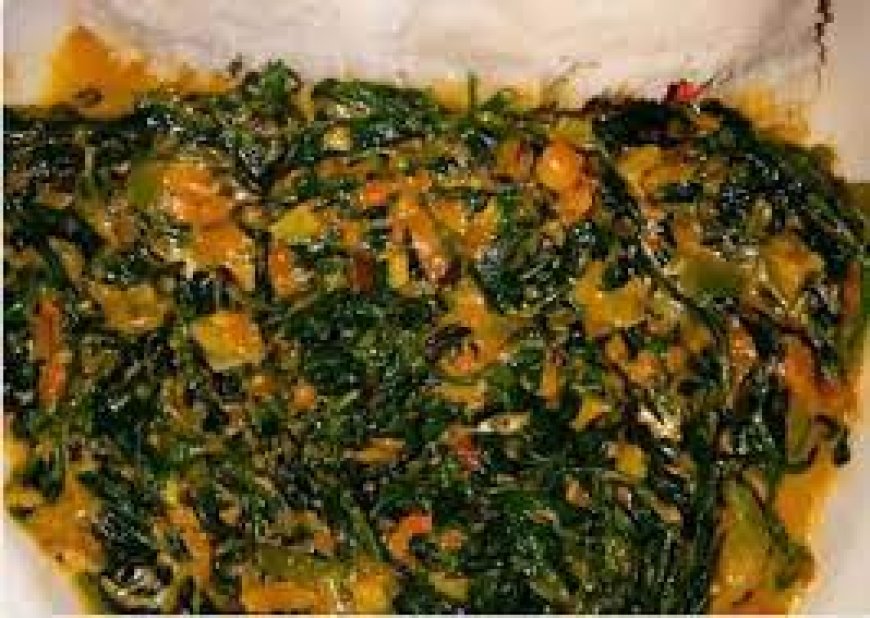Why Managu vegetable is more than just a leafy green: A dive into the Health Benefits of Managu.
In this article, we explore the nutritional and health benefits of Managu, a versatile leafy green vegetable. We delve into its rich nutritional profile, including vitamins, minerals, and antioxidants. Additionally, we discuss its potential benefits during pregnancy and its role in managing ulcers. We also provide insights into how Managu vegetable is grown . Lastly, we share tantalizing recipes to inspire you to incorporate Managu vegetable into your meals. Whether you're seeking to boost your health or explore new culinary possibilities, Managu proves to be a valuable addition to your lifestyle.

Are you looking for a powerful way to boost your antioxidants and vitamins intake? Look no further than nightshade, also known as managu. This leafy green is packed with beneficial nutrients that can support your overall health and wellbeing. From its rich antioxidant content to its high levels of vitamin C, discover the incredible nutritional benefits of nightshade in this informative blog post. Get ready to add some serious superfood power to your diet!
Introduction to Nightshade (Managu)
Nightshade, also known as Managu, is a leafy green vegetable that is native to Africa. It is a member of the Solanaceae family, which includes other vegetables such as tomatoes, potatoes, and eggplants. Nightshade can be eaten fresh or cooked. When cooked, it has a mild flavor and a slightly earthy taste. Here are some of the commonly asked questions about managu:
1: What is the Nutritional Value of Managu?
Managu is an excellent source of vitamins and antioxidants. The leaves are rich in Vitamin C, carotenoids, flavonoids, and phenolic acids. It also contains fiber, potassium, and magnesium. These nutrients can help boost your immune system, protect your cells from damage, and reduce inflammation hence reducing the risk of chronic diseases such as cancer. The berries of the nightshade plant are also high in antioxidants and have been shown to improve blood sugar control in diabetics.
2. What are the health benefits of managu vegetables?
In addition to its nutritional value, the nightshade plant has several other benefits. It has been used traditionally to treat stomach problems, skin conditions, and respiratory infections. The leaves can also be applied externally to relieve pain from arthritis and joint pain.
3. Are there specific benefits of managu during pregnancy?
Here are some of the benefits of managu during pregnancy:
Rich in vitamins and minerals: Managu is a good source of vitamins A, C, and K, as well as iron, calcium, and potassium. These nutrients are essential for the healthy growth and development of the fetus.
Helps prevent anemia: Managu is high in iron, which is essential for the production of hemoglobin in red blood cells. Eating managu can help prevent anemia, a common condition during pregnancy.
Boosts immunity: Managu contains vitamin C, which is an antioxidant that helps boost the immune system. This can help protect both the mother and the fetus from infections.
Helps with digestion: Managu contains fiber, which can help prevent constipation, a common problem during pregnancy.
May reduce the risk of birth defects: Managu is rich in folate, a B vitamin that is essential for the healthy development of the fetal brain and spine. Eating managu during pregnancy may reduce the risk of birth defects such as spina bifida.
4. Is managu good for people with ulcers?
Yes! This kienyeji vegetable has a very low acid content, making it an ideal vegetable for a person with ulcers.
5. How to Prepare Managu for Maximum Nutritional Benefit
To get the most out of your managu, it's important to prepare it correctly. Here are a few tips to help you get the most nutritional benefit from this mighty leafy green:
1. Choose fresh managu whenever possible. While frozen or canned varieties are okay in a pinch, nothing beats the flavor and nutrient content of fresh managu.
2. Wash your managu thoroughly before cooking. This will help remove any dirt or debris that may be on the leaves.
3. Cook your managu lightly for maximum nutrient retention. Steaming or stir-frying are both good methods for cooking this leafy green without losing too many nutrients.
4. Add other healthy ingredients to your managu dish for an even bigger nutritional boost. Pairing managu with other nutrient-rich foods like fruits, vegetables, lean protein, or whole grains will help you create a well-rounded and nutritious meal.
6. Different Ways to Incorporate Managu into Your Diet.
There are many different ways to incorporate managu into your diet. The leaves can be eaten raw or cooked, and they can also be made into a tea. Managu can also be added to smoothies or juices.
If you are looking for a way to boost your intake of antioxidants and vitamins, adding managu to your diet is a great option.
7. Recipes with Managu
There are many ways to enjoy this nutritious leafy green. Try it in a salad, sautéed as a side dish, or blended into a smoothie. For a delicious and healthy recipe, try this mango-managu smoothie:
Ingredients:
1 cup frozen mango chunks
1 cup managu leaves
1 banana
1 cup unsweetened almond milk
Directions:
1. Add all ingredients to a blender and blend until smooth. Enjoy immediately!
8. How is Managu grown?
Managu thrives in cool to warm climates, making it an ideal crop to grow. To ensure optimal growth, the plant should be spaced 30 by 10 centimeters apart. With sufficient watering, managu can be expected to mature within 30 to 45 days.
9. Alternatives to Managu
If you're not a fan of nightshade (managu), there are plenty of other leafy greens that offer similar nutritional benefits. Swiss chard, for example, is an excellent source of vitamins A, C, and K, as well as magnesium, potassium, and iron. Like nightshade, it's also a good source of antioxidants.
Kale is another nutrient-rich leafy green that's high in vitamins A, C, and K. It also contains calcium, copper, potassium, and manganese. Kale is a particularly good source of beta-carotene and lutein, two nutrients that are important for eye health.
Spinach is another excellent option for getting your antioxidant fix. It's rich in vitamins A and C, as well as iron and folate. Spinach is also a good source of lutein and zeaxanthin, two nutrients that help protect against age-related macular degeneration.
Conclusion
Nightshade (Managu) is a nutrient dense vegetable that contains an impressive array of antioxidants and vitamins. It is also rich in fiber, iron, calcium, magnesium and potassium which can help you stay healthy. Eating this leafy green as part of your diet can provide numerous health benefits such as improved immunity, better heart health and reduced risk of certain diseases. Incorporating Nightshade (Managu) into your daily meals could be the perfect way to get more nutrients from the food you eat while still enjoying its delicious taste!








